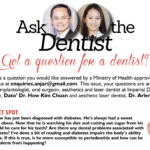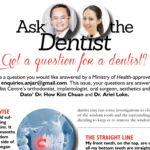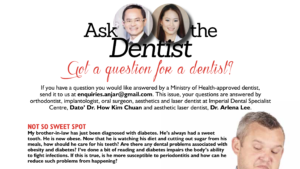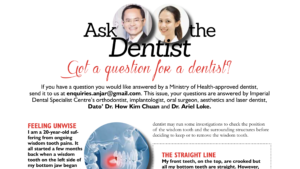
 What you are experiencing is the cracked tooth syndrome (CTS), which is a relatively common problem faced by many today. The common causes for CTS are habits such as long-term clenching, grinding and biting on hard foods such as chicken bones and peanuts – to name a few.
What you are experiencing is the cracked tooth syndrome (CTS), which is a relatively common problem faced by many today. The common causes for CTS are habits such as long-term clenching, grinding and biting on hard foods such as chicken bones and peanuts – to name a few.
Often, a cracked tooth is found in patients who have large filings on a tooth, or a weakened tooth due to extensive decay, or a hypo-mineralised tooth. Symptoms such as extreme sensitivity to hot or cold and pain on biting in the area are usual.
What to do with a cracked tooth depends largely on which cracked tooth features you have. As you have rightfully mentioned, there is research to say that not all cracked teeth should be extracted, but this depends on the extent of the crack. As your tooth does not cause any pain, the possibility is that the crack on the tooth could be superficial and on the surface, or that the tooth is dead.
The dentist will determine which it is through a series of tests to determine the extent of the crack. If the tooth can still be salvaged, root canal treatment and subsequently a crown could be put in place to prevent any further cracking on the tooth. This will also aid in preventing bacteria from spreading into the nerve of the tooth. If the tooth has completely split into two, extraction and replacement of the tooth would be a better choice.
Last but not least, deciding the course of treatment for a cracked tooth largely depends on the extent of the crack. Hence, early detection would be beneficial to the patient. I would suggest that you consult your dentist immediately to avoid further damage to your tooth. That having been said, prevention is always the best cure. In future, do visit your dentist for a routine check up every six to 12 months for optimum overall dental health.







